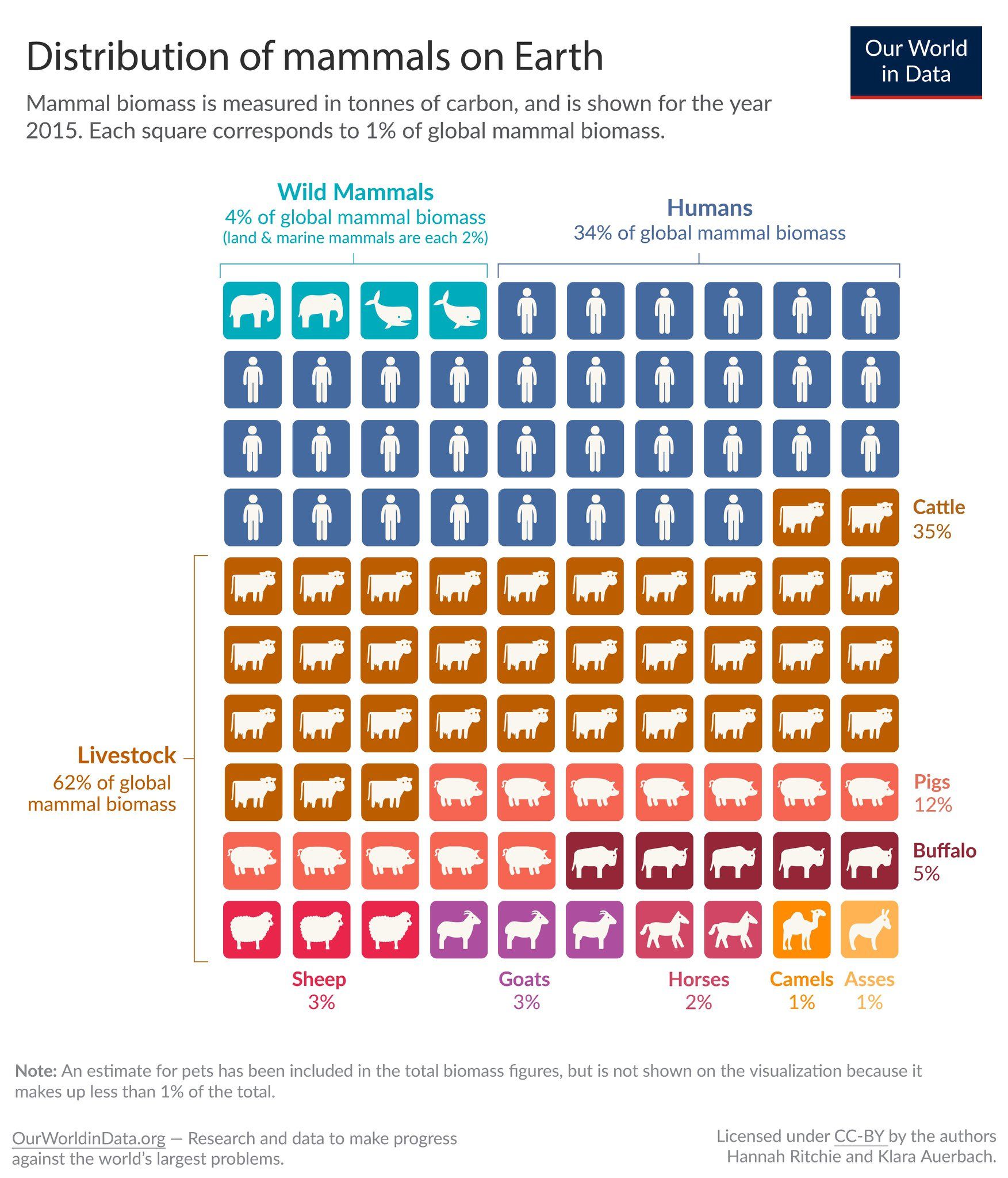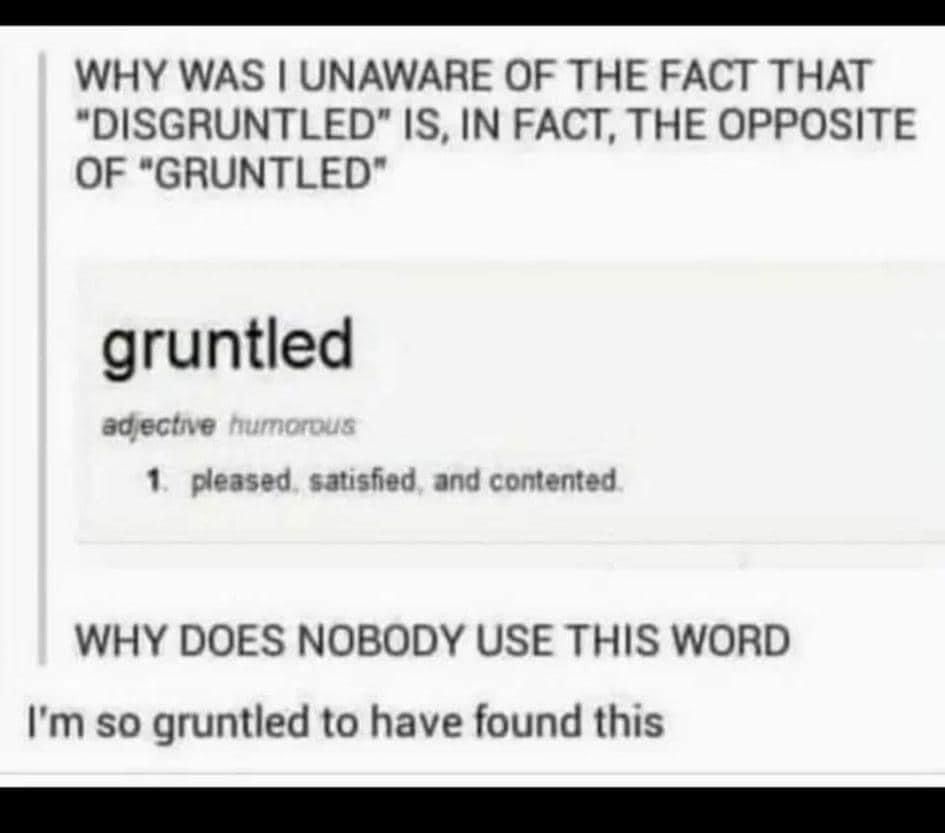Mildly interesting
-

-
-
@jon-nyc said in Mildly interesting:
He’s the biggest sports star in the world. What do you expect?
Yeah, but $789 to watch Inter-Miami? It's like the elephants graveyard for great footballers.
-
@mark said in Mildly interesting:
What about Dogs and Cats? Why are Buffalo not classified "wild"?
Those were my questions as well…
-
@Mik Me too. I am very gruntled to have learned a new word.
-
https://www.merriam-webster.com/dictionary/gruntle
Which Came First, gruntle or disgruntle?
The verb disgruntle, which has been around since 1682, means "to make ill-humored or discontented." The prefix dis- often means "to do the opposite of," so people might naturally assume that if there is a disgruntle, there must have first been a gruntle with exactly the opposite meaning. But dis- doesn't always work that way; in some rare cases it functions instead as an intensifier. Disgruntle developed from this intensifying sense of dis- plus gruntle, an old word (now used only in British dialect) meaning "to grumble." In the 1920s, a writer humorously used gruntle to mean "to make happy"—in other words, as an antonym of disgruntle. The use caught on. At first gruntle was used only in humorous ways, but people eventually began to use it seriously as well.
Word History
Etymology
back-formation from disgruntleFirst Known Use
1926, in the meaning defined above




